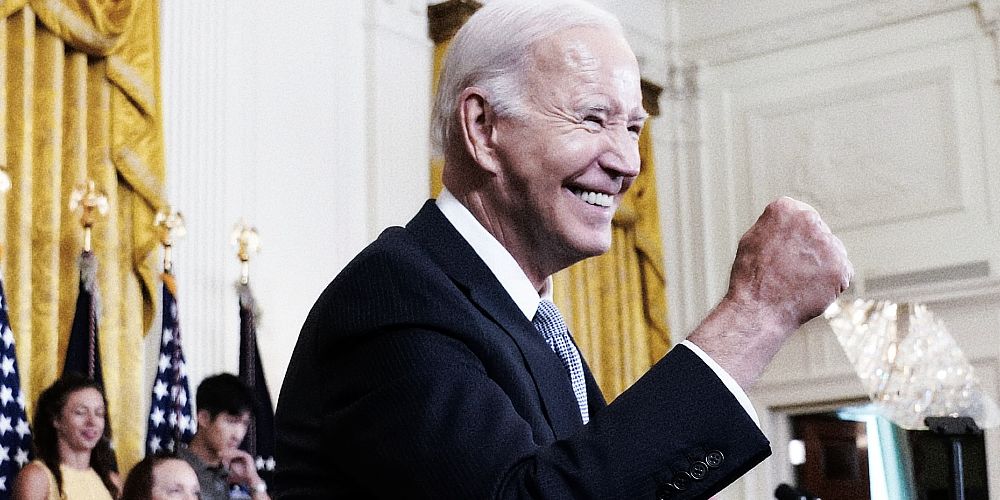In a stunning admission that raises eyebrows and questions the integrity of the Biden-Harris administration, President Joe Biden recently conceded that the so-called Inflation Reduction Act, which has done little to curb inflation and instead funneled a staggering $369 billion into “green energy” initiatives, was misnamed.
Now, after seemingly rushing to push this legislation through Congress, the truth is coming to light. The Penn Wharton Budget Model has found that this bill will only reduce inflation by a mere 0.1 percent over five years, a fact that the Congressional Budget Office corroborates. So, what exactly are we dealing with here? A scaled-down version of the failed Build Back Better Act, masquerading as a solution to our economic woes, while in reality, it is “the single most significant legislation to combat climate change in our nation’s history,” as the Biden-Harris Department of Treasury proudly proclaimed in a release last November.
Let’s break this down. The Inflation Reduction Act allows Medicare to negotiate drug prices, extends enhanced Obamacare subsidies for three years at a cost of
64 billion, and claims to reduce the deficit by $300 billion.
But hold on—this bill also increases taxes just as America teeters on the brink of recession and boosts funding for the IRS by a jaw-dropping $80 billion, making it larger than the Pentagon, State Department, FBI, and Border Patrol combined. Is this really what Americans need right now?
Financial experts are sounding the alarm on this nearly trillion-dollar boondoggle. BlackRock CEO Larry Fink pointed out in April that it’s hard to envision inflation dropping to two percent, given the reckless spending spree initiated by Biden and the Democrat-led 117th Congress.
“I think two is a hard number. We have restructured how we frame our economic policy. We have a trillion dollars of fiscal stimulus in the CHIPS Act, the Infrastructure Act, and the [Inflation Reduction Act],” Fink emphasized during an appearance on CNBC’s Squawk on the Street.
Meanwhile, the Consumer Price Index in July surged by 2.9 percent year-over-year, a clear indicator that the administration’s policies are failing.
Fox News’s Larry Kudlow, who served as the director of the National Economic Council during the Trump administration, didn’t hold back in his critique of the Inflation Reduction Act. He stated, “There is not one single iota, scintilla, whit, shred or morsel of economic growth incentives in this bill. Not a single comma, semicolon, dotted ‘i’ or crossed ‘t’ of growth. Nothing.”
So, what’s the takeaway here? The Biden-Harris administration is pushing a narrative that simply doesn’t hold water. With a name like the Inflation Reduction Act, one would expect a focus on economic stability and growth. Instead, we see a politically motivated agenda that prioritizes climate change over the pressing needs of American families. It’s time for the American people to wake up and recognize the hypocrisy and double standards at play. This isn’t just politics as usual; it’s a dangerous game that could have lasting repercussions as we head into the 2024 election.
What Would You Do If Pharmacies Couldn’t Provide You With Crucial Medications or Antibiotics?
The medication supply chain from China and India is more fragile than ever since Covid. The US is not equipped to handle our pharmaceutical needs. We’ve already seen shortages with antibiotics and other medications in recent months and pharmaceutical challenges are becoming more frequent today.
Our partners at Jase Medical offer a simple solution for Americans to be prepared in case things go south. Their “Jase Case” gives Americans emergency antibiotics they can store away while their “Jase Daily” offers a wide array of prescription drugs to treat the ailments most common to Americans.
They do this through a process that embraces medical freedom. Their secure online form allows board-certified physicians to prescribe the needed drugs. They are then delivered directly to the customer from their pharmacy network. The physicians are available to answer treatment related questions.



